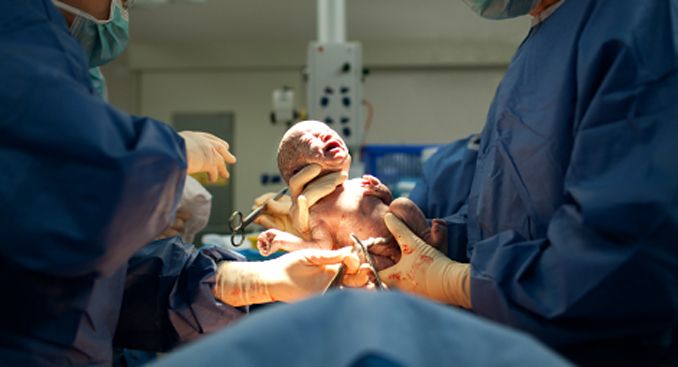Britain’s high cesarean section rate can’t be blamed on moms who are too lazy, too busy or too glamorous to pant, sweat and “hee-hee-hoo” their way to a baby. A new study published in the British Medical Journal found no evidence of such a trend and instead reports that most C-sections in England have a medical basis. Lead author Fiona Bragg explains that “most women undergoing a cesarean section in 2008 had at least one clinical risk factor, and there is little variation in adjusted rates of elective cesarean section.”
That tells us that it isn’t as simple as blaming low-risk moms who are simply “too posh to push” — which we’ve long suspected here at Broadsheet — but it doesn’t give us someone or something that we can blame. (That’s a bummer, seeing as the blame game is so much fun, right?) We do know, however, that past research has suggested that doctors have lowered their medical risk threshold for C-sections. Why, you might ask? Well, not only do cesareans cost much less than vaginal birth after C-section (aka VBAC) — thanks to guidelines requiring that hospitals have surgical and anesthesia teams on stand-by for such cases — but they also can help protect doctors and hospitals against lawsuits. Also, as we’ve reported in the past, cesareans make private hospitals more money. A recent Associated Press piece on a study predicting the continuing rise of the cesarean rate reports that “explaining the increase in C-sections is no simple matter”:
The study found a variety of reasons, some related, including heavier moms and babies, women giving birth later in life, an increase the number of twins and multiple births, and evidence that doctors may be opting for a cesarean if women encounter difficulties in the early stages of labor.
There is still plenty of room for speculation and finger-pointing — but now we’re at least down one culprit and one mommy-shaming pseudo-trend.

